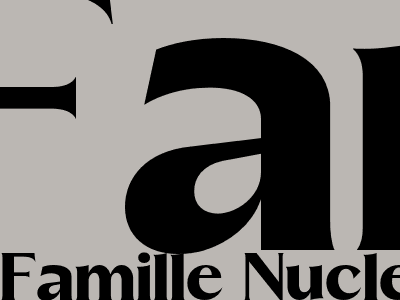
Famille Nucleaire
Famille Nucleaire: A Comprehensive Guide to Structure, Roles, and Dynamics
Introduction
The term "famille nucleaire" refers to a family structure consisting of a couple and their offspring. This model, also known as the traditional family, has been a prevalent form of family organization across diverse cultures and historical periods. In this article, we will explore the structure, roles, and dynamics of the famille nucleaire, examining its evolution, challenges, and significance in contemporary society.
Structure and Roles
The famille nucleaire typically comprises a heterosexual couple and their biological or adopted child(ren). This basic structure has remained relatively stable over time, although variations have emerged, such as single-parent families and blended families. Within the traditional family structure, specific roles are often assigned to each member: *
Father: Traditionally, the father is perceived as the breadwinner and head of the household, responsible for providing financial support and protection. *
Mother: The mother is often the primary caregiver and nurturer, responsible for domestic tasks and child-rearing. *
Children: Children are dependent on their parents for care and guidance, while contributing to the family through their emotional and social development.
Dynamics
The dynamics of the famille nucleaire are shaped by a complex interplay of factors, including: *
Communication: Open and effective communication is essential for maintaining healthy relationships within the family. *
Conflict: While conflict is a natural part of family life, its management and resolution are crucial for family stability. *
Attachment: Strong attachments between family members foster a sense of security and belonging. *
Socialization: The family serves as a primary agent of socialization, transmitting values, beliefs, and behaviors to its members.
Evolution
The famille nucleaire has undergone significant transformations throughout history. In pre-industrial societies, extended families were more common, with multiple generations living together. However, as industrialization and urbanization gained momentum, the emphasis on individual autonomy and mobility led to a shift towards smaller, nuclear family units.
Challenges
Despite its enduring presence, the famille nucleaire has faced numerous challenges in recent times: *
Divorce: The rising divorce rate has resulted in an increasing number of single-parent and blended families. *
Work-life balance: The demands of modern workplaces can strain family relationships and make it difficult for parents to fulfill their traditional roles. *
Changing gender roles: Traditional gender roles within the family have become more fluid, leading to a re-examination of responsibilities and expectations.
Signific
Comments